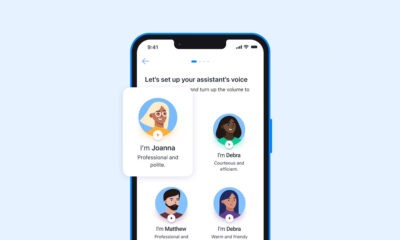News
Microsoft Blocks Lebanon-Based Hackers Targeting Israel
The hackers were abusing Microsoft’s file hosting service, OneDrive, to target private and government organizations in Israel.

Microsoft Threat Intelligence Center (MSTIC) has successfully identified and disabled an attack orchestrated by a Lebanon-based activity group called Polonium.
The group was abusing Microsoft’s file hosting service, OneDrive, to target private and government organizations in Israel. Based on its tools and techniques, it seems that Polonium is affiliated with Iran’s Ministry of Intelligence and Security (MOIS).
“Polonium has targeted or compromised more than 20 organizations based in Israel and one intergovernmental organization with operations in Lebanon over the past three months,” explains MSTIC.
The good news is that all legitimate OneDrive accounts are completely safe because the attack didn’t involve any security issues or vulnerabilities. Instead, Polonium used the file hosting service for command and control to execute part of their attack operation.
Polonium’s targets include primarily organizations in critical manufacturing, IT, and defense industry. “In at least one case, Polonium’s compromise of an IT company was used to target a downstream aviation company and law firm in a supply chain attack that relied on service provider credentials to gain access to the targeted networks.”
MSTIC is still actively investigating how Polonium gained initial access to many of their victims, but it knows that most victims were running Fortinet appliances. Based on this fact, MSTIC suspects that the CVE-2018-13379 vulnerability was used to gain access inside the targeted organizations.
Also Read: Is Your Phone Hacked? How To Find Out & Protect Yourself
While the threat has been contained, there are certain actions MSTIC recommends all organizations to take to protect themselves, such as confirming that Microsoft Defender Antivirus is updated, enabling multi-factor authentication (MFA), and blocking in-bound traffic from specific IP addresses.
This isn’t the first instance of threat actors using OneDrive and other similar file hosting services to achieve their nefarious goals. Last year, for example, Microsoft discovered that OneDrive was used to host malware files commonly used to launch Conti ransomware attacks.
News
Mamo Completes $3.4M Funding Round To Enhance Fintech Services
The startup will use the influx of cash to expand into Saudi Arabia and across the wider GCC while improving its product offering.

UAE-based fintech Mamo has announced the completion of a $3.4 million funding round that will help the startup extend its market presence and improve its product offering. Investors included 4DX Ventures, the Dubai Future District Fund and Cyfr Capital.
Mamo’s platform offers “payment collection, corporate cards and expense management” to help small and medium-sized businesses consolidate and streamline their operations. With the latest influx of capital, Mamo will further develop its comprehensive suite of services and begin testing its product lines in Saudi Arabia, further extending its footprint across the GCC.
Imad Gharazeddine, co-founder and CEO of Mamo, stated: “We’ve been in the market for a while now and are incredibly proud of what our team has achieved. The holistic and expansive nature of our product offering has helped us continue to grow sustainably. This additional funding will allow us to reach our medium-term goals even faster. The support from new and existing investors is a testament to our strong expertise and the ability to deliver on our customer promise”.
Daniel Marlo, General Partner of lead investor 4DX Ventures, added: “We have immense trust in Imad’s vision, leadership and Mamo’s innovative approach to provide a user-friendly and comprehensive financial solution for SMEs that makes financial management more accessible and efficient. We are proud to partner with them and support their mission”.
Also Read: A Guide To Digital Payment Methods In The Middle East
Amer Fatayer, Managing Director of Dubai Future District Fund’s investment team, also commented: “Mamo’s localized product lines serve as an infrastructure for SME payments and spend management in UAE, a segment that is underserved by the country’s current banking infrastructure. The team has taken a product-first approach to consolidating SMEs’ financial journeys and building a fintech solution deeply embedded in a business’s core operations”.
To date, Mamo has raised around $13 million in investment funding and now boasts a team of 30 people. The company’s intuitive financial services platform has allowed over 1,000 businesses to consolidate their financial operations and significantly reduce payment fees.
-

 News4 weeks ago
News4 weeks agoAmazon Prime Day 2024: Get Ready For 6 Days Of Amazing Deals
-

 News4 weeks ago
News4 weeks agoSamsung Unpacked 2024: What To Expect From The July 10 Event
-

 News4 weeks ago
News4 weeks agoCoursera Report Shows Surge In UAE Interest In AI Upskilling
-

 News4 weeks ago
News4 weeks agoMeet Dubai’s Groundbreaking Smart Robot Delivery Assistant
















